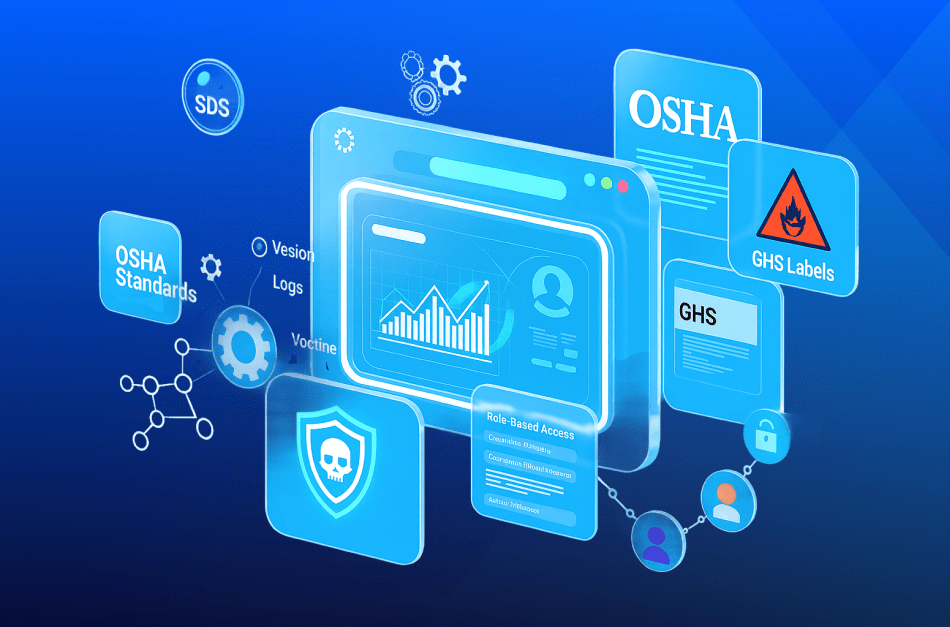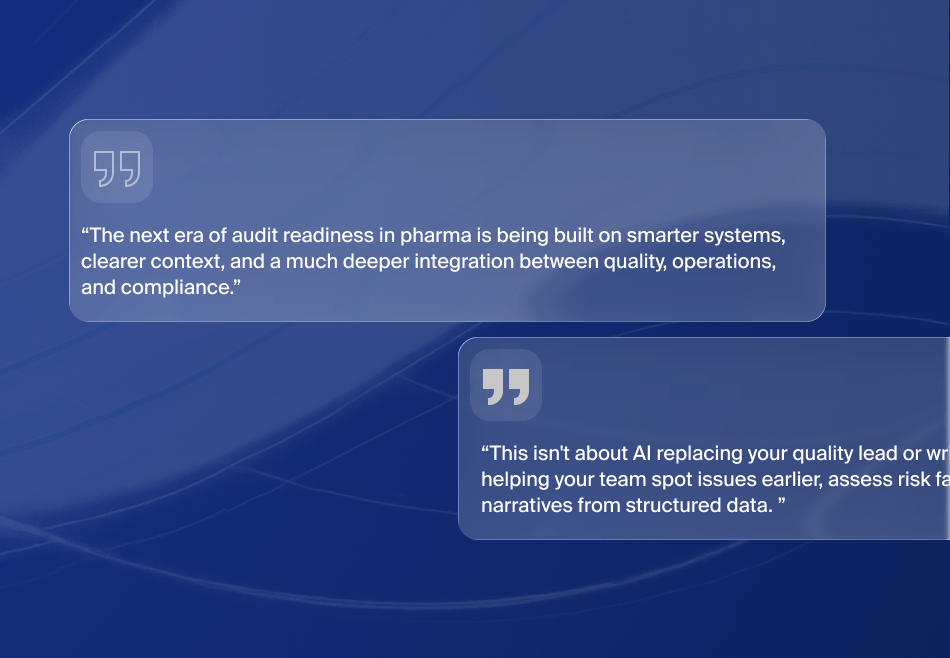At a Glance
- ERP implementations are transitioning from being just a business choice to a necessity. Companies are now seeking ways for faster, smoother, and more economical implementation strategies.
- An expedited ERP implementation strategy involves rapid methods that bring must-have features from legacy systems into a newer, agile and modern system.
- Enterprises face many issues with rapid implementation, such as stringent scope, change management, limited customization options, etc.
- Latest technologies and methodologies can make rapid ERP implementation a possibility for companies that want a higher ROI on their technology investments.
95%
of respondents improved some or all of their business processes after implementing a new ERP.
Source: Panorama Consulting
If enterprises were asked about their ERP implementation strategies a decade ago, the responses would vary widely. Many were skeptical, some were eager yet unsure and almost all who were positive, opted for steady onboarding into the new ERP. The continuing implementation model meant that employees were trained at a slow pace in the ERP, customizations were done as per requirements, and the budget was spread out. However, in the current day changeover to a new ERP is quicker making enterprises be agile and dynamic. Companies are lot more informed about the various technologies in the market and all they need is to plan the right time for the implementation and choose the right partner.
According to the report published by Allied Market Research, the global ERP software market accounted for $35.81 billion in 2018 and is anticipated to reach $78.41 billion by 2026, growing at a CAGR of 10.2% during the study period.
Many organizations are now opting for a cloud-based, rapid ERP implementation method, as they understand the benefits of the approach. The new decade demands companies to be more adaptable with a workforce that can quickly adjust to changes. In the past decade, companies that tried to get their employees be more nimble faced many challenges. Workforce could not promptly understand the market’s changing needs and adjust accordingly. They were usually overwhelmed, confused and unmotivated to move quickly. However, the new-age has limited choice to stay stuck in the same method of functioning, as many companies have already transformed to agile ERPs. The initial changeover may be painful but is necessary. Companies have to provide the right technology platform and help employees adjust to the new system. Once employee training and onboarding to the new system is done, they become accustomed to a continuous improvement procedure that drives growth.
The benefits of an expedited reorganization through quick ERP changeover makes enterprises go with a rapid transformation methodology.
Figure: 1Benefits of Rapid ERP Implementation

Why do companies move slowly when it comes to deciding on a new ERP? CIOs look for some general points such as ERP system with proven business benefits, technology roadmap for the future, company’s ability to move into a new ERP rapidly, etc.
Challenges in Rapid ERP Implementation:
1.Reduced Scope of Customization: Any ERP system that is suitable for a rapid implementation has templates for users to easily fill data, and tools that can easily help users move to the new system. This eliminates the need for customized codes and also simplifies the use of the tool. Some companies may find this method constricting, especially when they intend to customize the application to fit their current business processes. Predefined templates allow companies to go with out-of-the-box functionality. The newer system may follow all industry best practices out-of-the-box and may restrict you from overly customizing the system to fit your historical business practices. To remove the discomfort of user adoption to the new system, companies customize the system and make it look like the old system. Rapid implementations restrict customizations, creating some change management issues.
65%
of new implementation budgets go above plan due to customizing the ERP system during the project.
2.Challenges in Faster Change Management: Rapid ERP implementation process requires setting up a system that can manage end-to-end processes. The system however should be designed to scale and accommodate updates or future releases without too much effort. An expedited change management timeline can be tough on users especially if they are unable to adapt quickly. Aligning all the stakeholders, making them privy to the to-be changes, avoiding communication gaps, managing resistance, and sticking to the budget are some of the challenges organizations face when moving to an agile cloud-based ERP.
3.Data Migration Challenges: Moving from legacy to ERP requires collation, classification, and systematic migration of legacy data. In the case of rapid ERP, moving to the cloud requires thorough data scrubbing within a limited time to ensure that data is accurate. To avoid a drain on budget, companies engage an internal resources to clean up legacy data. The data migration process goes smoothly when data is cleaner and in the right format.
4.Managing expectations: Lastly, companies often look at an ERP as their be-all-end-all solution. Rapid ERP tools are made with reduced implementation time as a primary objective. There can be certain discrepancies in managing expectations with stakeholders. A proper internal champion or change agent who can spearhead the transformation can make the transformation easy on the company. Furthermore, managing employees’ psychological resistance and expectations can also be a hurdle for companies in the initial period of implementation, especially if the company has been on the legacy system for many years. An implementation needs an internal change agent who knows how to set user expectations and take a tough stance on situations, especially the ones that can spiral the implementation out of control. Without an internal champion, no matter how good your implementation partner is, you will see a drain on budget, time and a continuous blame that will make your project a failure.
With these challenges ahead, how are the systems integrators ensuring that companies can still benefit from rapid ERP implementations? The answer lies in setting the right expectations with the customer and leveraging the native tool kits of the ERP. For example, Microsoft Dynamics 365 Finance & Operations comes loaded with features that can give companies worth their money. The reliability, industry-standard templates, relevant functionality, and more such hallmarks make Dynamics 365 the go-to solution for faster cloud-based ERP implementations.
Microsoft Dynamics 365 Finance & Operations also enables step-by-step e-learning for its applications like the Task Recorder Resources that can run as a guide for users to learn the functions. With this app, users can record business processes for various scenarios and replay them as a guide. The feature speeds up change management and removes the user’s discomfort of not knowing the system.
The bottom line is that rapid ERP implementations are highly successful when companies go with native functionality and leverage the strength of the base system, rather than customizing the system. At least for the initial lift and shift, it is always recommended to stick with out-of-the-box functionality. Today, the digital era requires enterprises to become agile while leveraging newer technologies like cloud, process automation, etc. Rapid ERP implementations are a start to help a company become more nimble and adjust to market conditions quickly. So it is not always about ‘this is what I am used to doing’, it is about ‘what do I need to do differently to be successful’. We cannot avoid change and resisting the change will only push your company’s progress further. Companies will need to help their employees understand the benefits of going rapid so that the implementation and execution can be done on time and within the allocated budget.
Key Takeaways
- Organizations need to be aware of challenges about rapid ERP implementation and be prepared with strategies to overcome these challenges.
- It is crucial to remember that rapid ERP is highly beneficial to contain project costs and onboard users quicker into the new system. However, the chosen ERP should be able to handle most if not all organization’s needs.
- Choosing the right tool for rapid ERP implementation is ‘half battle won’ for companies in their journey towards becoming agile.
Book Your Consultation for Rapid ERP Implementation.








